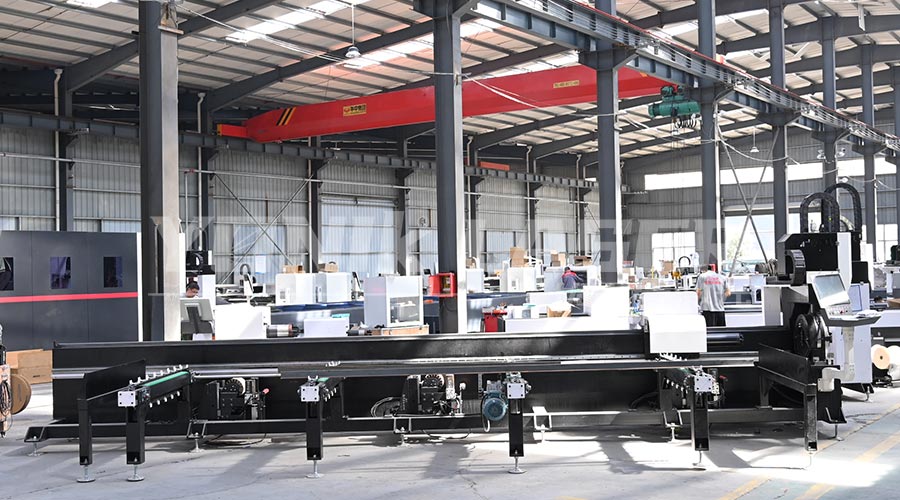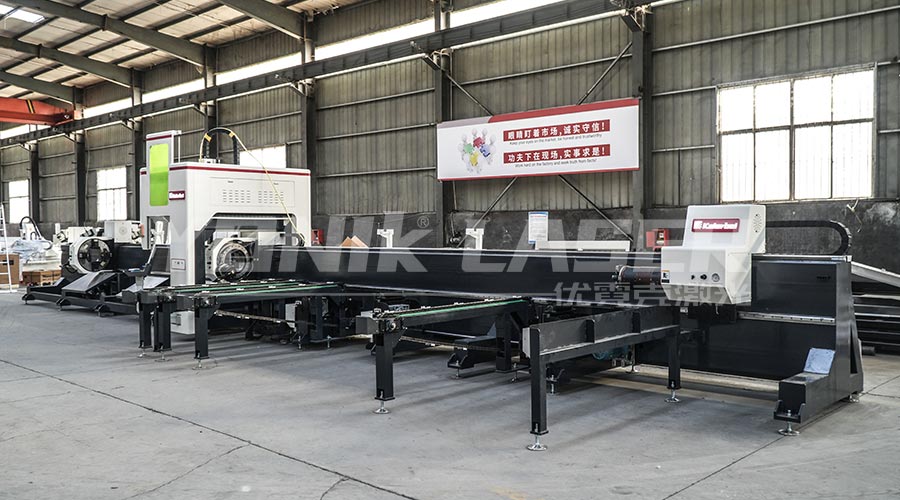In the metal fabrication industry, the laser cutting machine for sheet metal has become an indispensable core device. Its efficient and precise processing capabilities have brought revolutionary changes to manufacturing. However, the stable operation of such equipment relies heavily on scientific maintenance. For the laser cutting machine for sheet metal, establishing a reasonable maintenance schedule not only extends equipment lifespan but also ensures processing accuracy, reduces failure rates, and creates sustainable value for enterprises.

Core Factors Influencing Maintenance Cycles
The maintenance cycle for the laser cutting machine for sheet metal is not fixed. It requires dynamic adjustment based on factors such as equipment usage frequency, types of processed materials, and environmental conditions. Generally, equipment under high-intensity operation (running more than 8 hours daily) needs shorter maintenance intervals, while devices in light-duty scenarios can have extended cycles. Additionally, processing different materials like stainless steel or carbon steel generates varying levels of smoke and splatter, requiring targeted maintenance strategies.
Periodic Maintenance Essentials for Key Components
Optical System: The "Lifeline" of Laser Transmission
As the core component of the laser cutting machine for sheet metal, the optical system demands critical attention. Weekly basic inspections are recommended:
Lens Cleaning: Use dedicated lint-free cloths and alcohol to wipe focusing lenses and reflective mirrors, avoiding fingerprints or dust that compromise beam quality.
Optical Path Alignment: Monthly laser interferometer checks ensure cutting accuracy stays within 0.1mm.
Laser Maintenance: Replace cooling fluid every 500 operating hours and inspect laser cavity sealing every 2,000 hours.
Mechanical Transmission System: Foundation of Precision
Wear on guide rails, ball screws, and other transmission components directly affects equipment lifespan. Implement tiered maintenance:
Daily Care: Check guide rail cleanliness before startup and use vacuums to remove metal debris.
Monthly Maintenance: Apply specialized lubricating grease to X/Y-axis guide rails, with torque calibration controlled within 0.5N·m error margins.
Annual Overhaul: Replace severely worn bearings and inspect gear-rack engagement clearances.
Cooling System: Guardian of Stable Operation
Laser generators are highly temperature-sensitive. Cooling system failure can cause equipment downtime:
Water Quality Management: Replace deionized water quarterly, maintaining conductivity below 5μS/cm.
Pipeline Inspection: Clean water chiller radiators semi-annually to prevent biological sludge blockages.
Pressure Monitoring: Continuously monitor coolant flow rates and investigate pump abnormalities immediately.
Electrical Control System: Intelligent Hub
Modern laser cutting machines integrate numerous electronic components requiring special attention:
Dust Prevention: Monthly compressed air cleaning of control cabinets prevents short circuits from particulate buildup.
Software Updates: Promptly install firmware patches from manufacturers to address vulnerabilities.
Grounding Checks: Test equipment grounding resistance semi-annually, ensuring compliance with ≤4Ω safety standards.
Maintenance Adjustments for Special Conditions
When processing highly reflective materials like galvanized steel or brass, shorten optical system inspection intervals to every 3 days. For multi-shift production, implement quick shift-handover checks focusing on emergency stops and safety light curtains. In coastal high-humidity areas or dusty workshops, increase maintenance frequency for dehumidification systems and air filters.
Balancing Maintenance Costs and Benefits
While regular maintenance incurs costs, statistics show:

Preventive maintenance reduces annual failure rates by 67%
Timely optical system care extends lens replacement cycles by 2-3 times
Proper mechanical maintenance enables guide rail lifespans exceeding 50,000 hours
Enterprises should establish equipment health records and use IoT sensors to collect vibration and temperature data in real-time. Leveraging big data analytics for predictive maintenance can reduce unplanned downtime by 80% while significantly boosting productivity.
Effective maintenance cycle management for the laser cutting machine for sheet metal is fundamentally about optimizing the equipment's full lifecycle value. A scientific care plan not only ensures processing accuracy and efficiency but also maximizes residual value. In the Industry 4.0 era, upgrading traditional maintenance to intelligent predictive care will become pivotal for laser processing enterprises seeking competitive advantages. Remember: Every investment in equipment maintenance delivers multiplied returns in product quality and production efficiency.
2025-07-22
2025-07-21
2025-07-19